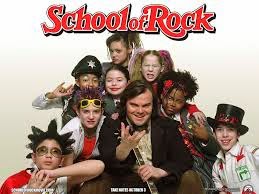As I seek out new ways to stay current with trends in education, I must also be conscious of why certain beliefs and views are valued and why others are not in the media. So much information is available to our youth today, and I feel it is important as an educator to help my students navigate and question certain propaganda portrayed by the media. One exercise I plan on implementing as soon as my students return in the fall will be S.C.W.A.A.M.P. This exercise did a wonderful job of opening my eyes to many of the reasons why certain stereotypes and injustices exist in our society today. I am sure that it will help to inform my students of our society’s dominant ideology. Having my students partake in this exercise will pair nicely with my belief of educating my students about their individual backgrounds and cultures. I am a strong believer in critical pedagogy, and that my students are empowered when they are informed about the historical past of their native cultures and the cultures of their classmates.
As a culminating project for Curriculum 501, I chose to create a better organizational tool for myself. The structure of the school where I am employed and the nature of my job require that I transition from location to location throughout the day. I have found it challenging to keep up with proper documentation, and I was/am in serious need of a tool that is both easily accessible, and easy to use. I have found that one of my greatest challenges in learning how to utilize technology more efficiently has been lack of time. I become reliant on tools that may be inefficient, mainly because I don’t have enough time to devote to learning what could be an easier way. This course provided me with the time to challenge myself and push myself to try new things, such as the digital tool, Evernote. My aim with using this new tool is to incorporate it into my daily schedule, and eventually try to have my students do the same. In one of our last classes, Dr. Bogad said something that stuck with me throughout the completion of this project: “If you create it, they will use it.” Hopefully this will hold true as I move forward with the implementation of this new tool.
To better organize and progress-monitor my students, I decided to create an Evernote account. Dr. Bogad and a couple of my classmates recommended this as a tool that might work well for my needs, so I decided to try it out for our first assignment in which we were required to learn and teach others about a digital tool. It took me quite a while to get accustomed to the various tools, but I was immediately pleased with the overall layout of the site and it’s accessibility from my smartphone. Last year I attempted to use Google Docs, but for some reason the layout didn’t work for me and I spent more time looking for information than accessing it. The Evernote account that I created allows me to create new “notebooks” for each student or group of students that I with whom I work. I can then add “files” into my “notebooks” to organize my individual students within groups or buildings. Although adding all of this information was quite time consuming, I now feel I have a tool that I will want to use to enable me to stay better organized for the benefit my students and me.
* Boyd, Danah. It's Complicated: The Social Lives of Networked Teens. N.p.: n.p., n.d. Print.
Final Pecha Kucha Attachment: Final Project Pecha Kucha
Excellent
(9.5-10)
|
Great
(8.75-9.25)
|
Good
(8-8.5)
|
Passing
(7-7.5)
|
Unacceptable/absent
(Under 7)
| |
Includes a narrative context about where this project came from, what you did and why it is important to you
|
X
| ||||
Explains how the use of digital technology enhances or changes this content/context (points x2)
|
X
| ||||
Draws from at least 3 of our course themes, texts or issues (points x2)
|
X
| ||||
Demonstrates something that you could not have done or conceptualized before this course
|
X
| ||||
Includes hyperlinks to at least 5 external resources (academic and/or technical)
|
X
| ||||
Writing Style (creativity, style, flow)
|
X
| ||||
Writing Style (grammar, spelling, format)
|
X
|

